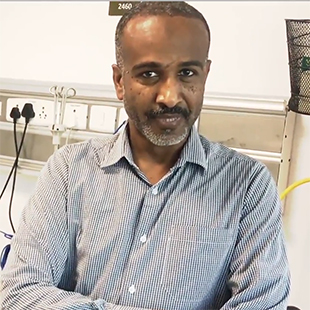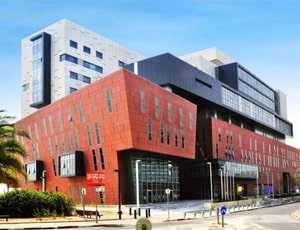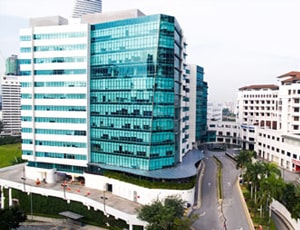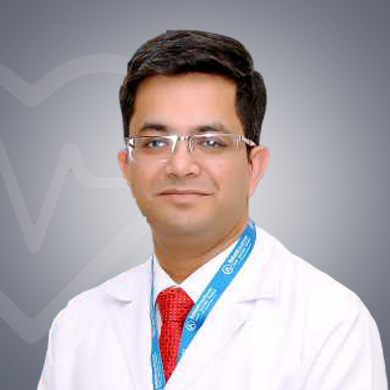The term "brain cancer" describes the abnormal development of brain cells that result in a mass or tumor. It can interfere with normal brain functions such as speech, movement, thoughts, feelings, memory, vision, and hearing. It is a disease of the brain in which abnormal, cancerous cells grow in the brain tissues. Typically, brain cancer is a developed form of a brain tumor. Primary brain cancer or a brain tumor develops from cells within the brain.
However, all brain tumors are not brain cancer. But one thing to note is that even benign tumors can cause serious problems by increasing intracranial pressure or obstructing vascular structures or cerebrospinal fluid flow in the brain.
Different types of cells in the brain such as gliomas, meningiomas, pituitary adenomas, vestibular schwannomas, and primitive neuroectodermal (medulloblastomas) can become cancerous. Gliomas have several subtypes, which include astrocytomas, oligodendrogliomas, ependymomas, and choroid plexus papillomas.
Brain Cancer Causes
The exact brain cancer cause is still unknown. However, its occurrence has been linked to several risk factors, including the following:
There are two types of brain cancer, including:
Metastatic cancer in the brain is more common than primary brain cancer. They are usually named after the tissue or organ where cancer first develops. Metastatic lung or breast cancer in the brain is the most commonly found brain cancer.
Brain Cancer: Grades
Tumors of the brain are assigned under a grade, depending on how normal or abnormal the cells appear microscopically. Grade measurements will help your doctor plan the most suitable treatment for you.
Some types of brain cancers such as meningeal and pituitary gland may produce few or no symptoms. Some of the brain cancer symptoms typically experienced by patients include:
Brain cancer diagnosis may start with asking questions about the patient’s medical history. The results of this interaction will determine the tests that are required to be conducted. The frequently used tests for brain cancer diagnosis include:
The brain cancer treatment plan is prepared by a medical specialist, who takes note of the cancer type, location, tumor size, patient age, and general health status before coming up with an individualized treatment plan. Typically, brain cancer treatment options include the following:


Tel Aviv, Israel
Assuta Medical Center is a leading private hospital in the capital city of Tel Aviv in Israel. Assut...more
![]() Airport Transfer
Airport Transfer
![]() Choice of Meals
Choice of Meals
![]() Interpreter
Interpreter
![]() TV inside room
TV inside room

Kuala Lumpur, Malaysia
History Parkway Pantai Hospital in Kuala Lumpur, Malaysia is operating under the Parkway Pantai gro...more
![]() Airport Transfer
Airport Transfer
![]() Choice of Meals
Choice of Meals
![]() Interpreter
Interpreter
![]() SIM
SIM

Delhi, India
Equipped with more than 50 specialty institutes, Indraprastha Apollo was started with the vision of ...more
![]() Private Driver / Limousine Services
Private Driver / Limousine Services
![]() International Cuisine
International Cuisine
![]() Phone in Room
Phone in Room
![]() Online Doctor Consultation
Online Doctor Consultation

Neurosurgeon
Delhi, India
18 Years of experience
USD 32 for video consultation

Neurosurgeon
Delhi, India
15 Years of experience
USD 40 for video consultation

Medical Oncologist
Gurugram, India
10 of experience
USD 50 for video consultation

Medical Oncologist
Gurgaon, India
18 Years of experience
USD 48 for video consultation
Q: Is it possible to completely cure brain cancer?
A: Brain cancer can be cured if diagnosed at an early stage. In the case of an advance stage, it is difficult to treat brain cancer completely with the help of chemotherapy, radiation, and surgery. However, treatment options can be used to shrink the size of the tumor and reduce the associated symptoms.
Q: What are the risks of brain surgery?
A: Formation of a blood clot, internal bleeding, muscle weakness, memory problems, and issues related to coordination, walking, balancing, and speech are some of the risks of brain surgery.
Q: What are the chances of surviving brain surgery?
A: Nearly 28.8 percent of males who are diagnosed with a primary malignant brain or spinal cord tumor is likely to survive for five years. The 5-year survival rate in case of females is around 31.6 percent.
Q: Is a craniotomy a serious surgery?
A: During a craniotomy, a bony flap is removed from the skull to look inside the brain and access it. As soon as the surgery is over, the surgeon places the removed piece of bone flap back and
Q: Is glioblastoma always fatal?
A: Some patients have lived for years with benign blastomas. However, malignant glioblastomas are almost always fatal and most of the patients die within two years of treatment. The patient may die within a few weeks if malignant glioblastoma is left untreated.
Q: How long does it take to perform a brain cancer surgery?
A: The surgeons may take around four to six hours to conduct brain cancer surgery. However, it may take even longer to conduct this procedure.